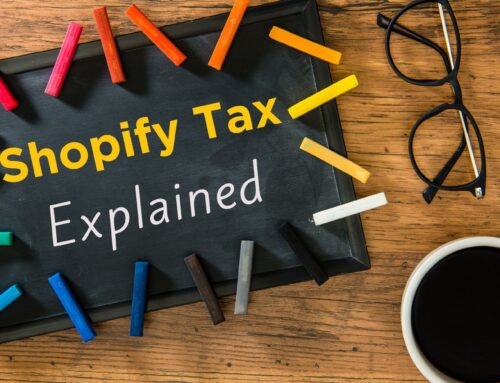
Sales tax for Shopify sellers can be complicated. My firm, VM Wasek, works with Shopify sellers to set up and streamline their financial systems. By far the question that I am asked most is how to deal with sales taxes. It can be scary and potentially damaging to your business if you’re not collecting the right taxes, so let’s talk about how to do it right. Below, I’ll share the 5 sales tax fundamentals Shopify sellers should know.
Check out the video linked below to learn about sales tax for Shopify sellers – what you should know:
#1: Will Shopify do sales tax for me?
Unfortunately, Shopify does not remit or file sales taxes for you. It’s important to understand that Shopify does not track whether you have met any of the various state filing requirements for filing sales taxes.
Although it doesn’t track your sales taxes, you can run reports that will tell you the sales that were made in different states. Shopify will collect sales taxes for you after you have set up those taxes in Shopify. So once you know which states you’ll need to file in and once you register, then you can set it up in Shopify.
#2: Where do I need to file sales tax?
What is nexus? Nexus is just a fancy word that means you need to file sales taxes in a particular state. You may have a physical nexus, which means that you have a physical location in that state. You may also have economic nexus, which basically applies to online sellers, meaning that you don’t have a physical location, but you are selling to a state that collects sales taxes for online sellers.
If you’ve met the nexus requirements in a state, then you need to see whether you qualify to collect sales taxes. In that case, you must meet the minimum thresholds to be subject to collecting those sales taxes. It may be based on the number of transactions, on the dollar amount, or both. It all depends on the state.
#3: Set up with the state
If you’re just starting out with your Shopify business, the first step is to register to collect and remit sales taxes in your home state. That’s because you have physical presence.
As an online seller, you don’t register to collect sales taxes in other states unless you have met their specific thresholds (depending on number of transactions and/or dollar amount of sales). You have to wait until you have met the threshold in a state before you register for sales taxes.
If you’ve met the threshold to collect sales taxes in certain a state, you need to register to collect sales taxes. I highly recommend using a sales tax registration service such as Sales Tax and More.
#4: Set up in Shopify
Once you’ve registered in a particular state and that registration has been processed, you need to set up the sales tax in Shopify. Go to Settings, then Taxes, in Shopify, and set up each state in which you have registered using the sales tax rate they provided you.
Now that you’re all set up, Shopify will tell you how much you need to pay, based on sales in each state and the tax rates you’ve entered.
#5: Send in that money!
Next it’s time to remit sales taxes. You have a few options for remitting your sales taxes:
- Do it yourself. I don’t really recommend doing this if you need to file in multiple states. If you’re just filing in one state, you might be able to, but be careful because you’re not a professional.
- Use an app. The right app can save you a lot of time and helps to get rid of the guess work. I recommend TaxJar. This app calculates the correct sales tax rates at checkout, and offers users an accuracy guarantee.
- Use a sales tax filing service. If you really just don’t want to hassle with your sales tax at all, you can let a pro handle it all for you. I recommend Sales Tax and More for this as well.
Closing
Now you’ve got the 5 sales tax fundamentals Shopify sellers should know. If you have questions about this or any other Shopify accounting topics, drop me a comment so I can create more videos and content to help you grow your e-commerce business with Shopify.
If you’re ready to work with a trusted and reliable Shopify accounting expert and want to learn more about my services, my firm VM Wasek specializes in e-commerce for Shopify, Amazon, and Walmart sellers. Click on this link to learn more about my services and see if my team is a good fit to help you elevate your e-commerce business and reach your goals.




